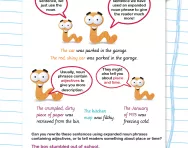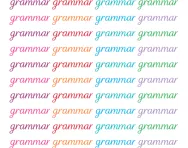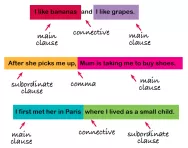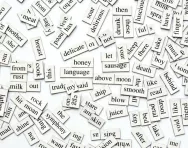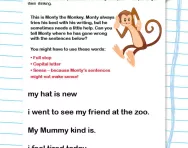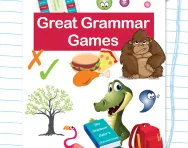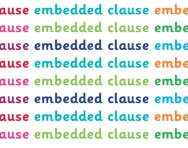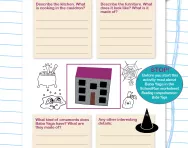Important update from TheSchoolRun
For the past 13 years, TheSchoolRun has been run by a small team of mums working from home, dedicated to providing quality educational resources to primary school parents. Unfortunately, rising supplier costs and falling revenue have made it impossible for us to continue operating, and we’ve had to make the difficult decision to close. The good news: We’ve arranged for another educational provider to take over many of our resources. These will be hosted on a new portal, where the content will be updated and expanded to support your child’s learning.
What this means for subscribers:
- Your subscription is still active, and for now, you can keep using the website as normal — just log in with your usual details to access all our articles and resources*.
- In a few months, all resources will move to the new portal. You’ll continue to have access there until your subscription ends. We’ll send you full details nearer the time.
- As a thank you for your support, we’ll also be sending you 16 primary school eBooks (worth £108.84) to download and keep.
A few changes to be aware of:
- The Learning Journey weekly email has ended, but your child’s plan will still be updated on your dashboard each Monday. Just log in to see the recommended worksheets.
- The 11+ weekly emails have now ended. We sent you all the remaining emails in the series at the end of March — please check your inbox (and spam folder) if you haven’t seen them. You can also follow the full programme here: 11+ Learning Journey.
If you have any questions, please contact us at enquiries@theschoolrun.com. Thank you for being part of our journey it’s been a privilege to support your family’s learning.
*If you need to reset your password, it will still work as usual. Please check your spam folder if the reset email doesn’t appear in your inbox.
What is a phrase?
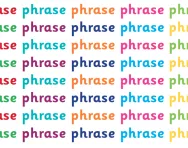
What is a phrase?
A phrase is a small group of words that does not contain a verb (as soon as a verb is included, the group of words become a clause).
Examples of phrases are:

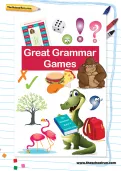
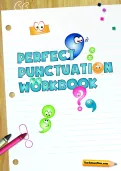
Download Fantastic FREE Grammar Resources!
- Perfect Punctuation Workbook
- Grammar Games Pack
- PLUS 100s of other grammar resources
There are different types of phrases, for example:
Noun phrases
A noun phrase includes one noun as well as words that describe it, for example: the black dog. In the classroom, children might be asked to look at noun phrases and turn them into expanded noun phrases, for example changing 'the black dog' to 'the big, furry black dog'.
Prepositional phrases
These are phrases that contain a preposition, for example: on the mat, in the morning, under the chair, during the film.
Adverbial phrases
An adverbial phrase is built around an adverb and the words that surround it, for example: very slowly, as fast as possible.
What are children taught about phrases at each stage of primary school?
Children are taught to expand their noun phrases in Year 2. They then continue to enrich their writing with the use of adjectives in Year 3 and 4.
In Year 4, they are also taught about prepositional phrases.
What questions should children expect on phrases in the Y6 grammar test?
Children may be asked questions similar to the following in the KS2 SPAG test (part of Y6 SATs):
Answer: The film about otters.

Answer: as a relative clause
This is a very tricky question! It would be easy to think the underlined part of the sentence was a prepositional phrase, as it states where something is happening, but it contains a verb, so it must be a clause. This kind of grammar question demonstrates why teachers will probably spend some time explaining the difference between phrases and clauses in the classroom!
How do teachers teach children about phrases?
Teachers may use some of the following methods to teach noun phrases and prepositional phrases:
- Encourage children to use prepositional phrases at the start of these sentences, for example by giving them a list of sentence openers that are all prepositional phrases (In the morning..., Beside the old church..., During the film..., Under the table...) and asking them to complete each sentence in their own way.
- Children may be asked to look through a text and underline all the noun phrases or prepositional phrases they can find.
- To enrich their writing (by using expanded noun phrases), children may be asked to look at their partner's work and add to it with extra description.
- Children may be given word banks of adjectives to help them expand their noun phrases.


